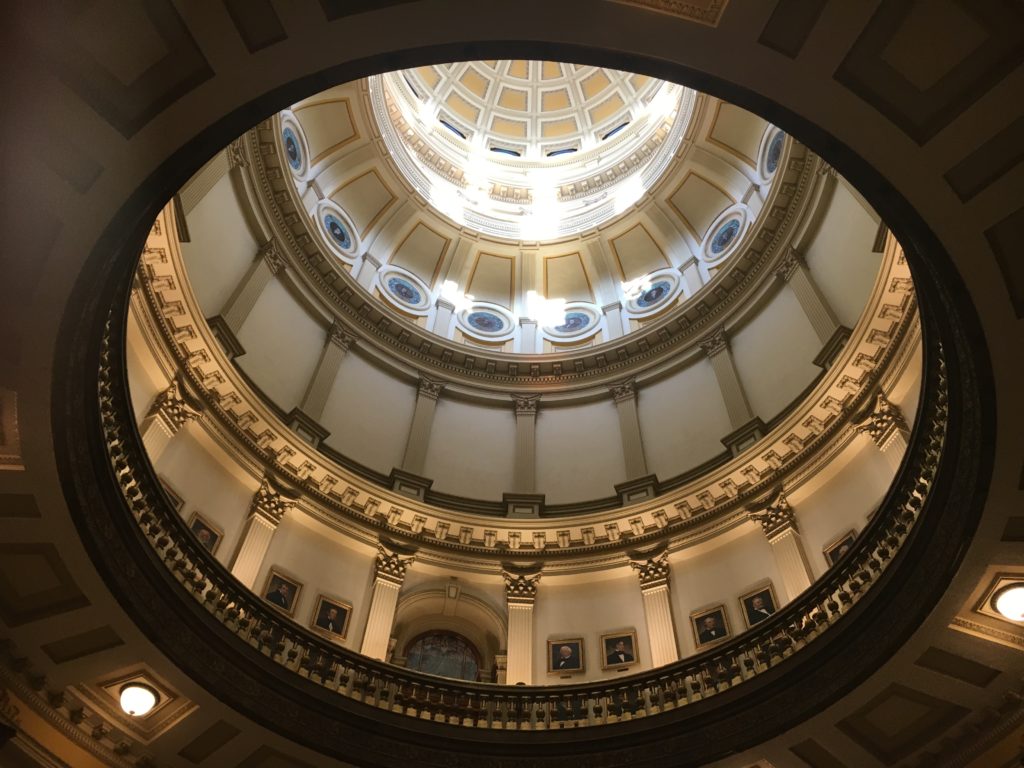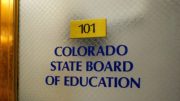By Jeffrey A. Roberts
CFOIC Executive Director
For those concerned about access to government records in Colorado, the 2022 legislative session was notable for what didn’t happen — the introduction of a bill addressing frustrating issues such as expensive fees, email retention and slow responses by law enforcement agencies.
The Colorado Freedom of Information Coalition and the Colorado Press Association provided input on multiple versions of legislation drafted at the request of Sens. Chris Hansen, D-Denver, and John Cooke, R-Greeley.
But the effort fizzled about 20 days before the General Assembly adjourned Wednesday.

You can blame, to some degree, the complexities of the Colorado Open Records Act (CORA) and the Colorado Criminal Justice Records Act (CCJRA) as well as the busy legislative schedule of Hansen, who tried to take on public records reform while shepherding the state budget as vice chair of the Joint Budget Committee.
“I went into this process identifying specific issues that we wanted to solve, but each time we dug into one problem, you’d surface additional complications, and it really meant there was a huge amount of back and forth,” Hansen told The Denver Post. “We’re trying to find the right balance, but when you move a little it can have some really big ripple effects.”
Various drafts of the bill that never got introduced focused on problems identified by CFOIC in articles and research papers.
In a 2020 report, we called on the legislature to reevaluate CORA’s “unbalanced” research-and-retrieval fee provision. A 2019 CFOIC report tackled the retention of email messages by government entities, pointing out that “open records laws cannot serve their purpose if requested records no longer exist.” In a “wish list” article in late 2020, CFOIC identified several other aspects of open-government law in need of reform, such as the lack of a deadline for responding to most CCJRA requests.
We contend the need to address CORA’s fee provision is becoming urgent because the maximum hourly rate governments can charge to process requests — currently $33.58 — is set to rise with inflation in July 2024. Even at $33.58, with the first hour provided at no charge, the rate multiplied by many hours “can be used to make public records so cost prohibitive, they are effectively off limits to the public,” CFOIC wrote in 2020.
The most recent draft of the Hansen/Cooke bill would have entitled records requesters to itemized receipts listing the number of hours spent on a request and a description of what was done to provide the records. It also would have: 1) required the state archivist to make rules for the retention of emails sent and received by state agencies; 2) required law enforcement agencies to release “sortable’ and “searchable” records in similar useful file formats, as CORA has required since 2017; 3) prohibited governments from charging a per-page fee when providing records in PDF format; and 4) set a deadline for law enforcement agencies to respond to records requests.
These ideas and others hopefully will provide a basis for consequential CORA/CCJRA reform in 2023.
Here is a roundup of 2022 government transparency, freedom-of-information, First Amendment and press-related bills tracked by CFOIC:
School superintendent finalists. House Bill 22-1110, signed into law by Gov. Jared Polis in early April, lets school board members meet behind closed doors to interview superintendent finalists, rank them, and instruct staff to begin contract negotiations with one or more. But the new executive session authorization is permitted only if a school board names multiple finalists and lets the public interview the candidates at an open forum.
Concealing educator absences. Senate Bill 22-171, which passed in late April, amends CORA to bar the disclosure of the specific date of a teacher’s absence from work. The bill was introduced in response to CORA requests and other public demands for the names of Douglas County School District teachers and staff members who took sick leave Feb. 3 to protest actions by majority members of the school board.
Concealing wildlife records. Senate Bill 22-169, sent to Polis earlier this week, gives records custodians discretion under CORA to withhold data that could reveal the specific location of certain plants, an individual animal or group of animals, or an animal’s breeding or nesting habitat. Sen. Kerry Donovan, D-Vail, said she introduced the measure because CORA has been “weaponized” by some people to look for burrowing owl nests, bald eagles, bighorn sheep, sage grouse and sensitive plant species.
CFOIC, the Colorado Press Association and the Colorado Broadcasters Association persuaded lawmakers to amend the bill, which as introduced would have changed CORA’s definition of “public records.” By instead giving government entities discretion to withheld certain wildlife records, a denial can be appealed in court.
Free website for high-court opinions. House Bill 22-1091, which passed last week, requires the online posting of every Colorado Supreme Court ruling and every published Colorado Court of Appeals — in a searchable format that’s free to use — by March 2024. “If case law is considered law, then citizens should have free and easy access to the law,” said Rep. Matt Soper, R-Delta, who introduced the measure with Rep. Mike Weissman, D-Aurora.
Fracking disclosure. House Bill 22-1348, which passed on Wednesday, requires the Colorado Oil and Gas Conservation Commission to post information about chemicals used in oil and gas operations on a public website.
Money-in-politics system. The FY 2022-23 state budget includes $1.6 million in capital construction funding for the Colorado Secretary of State’s Office to upgrade and combine its online campaign-finance and lobbyist disclosure platforms into a “comprehensive money-in-politics system.” The office hopes to have the system up and running for the 2024 election cycle.
Judicial discipline. Senate Bill 22-201, which passed on Tuesday, “makes some immediate changes to the state’s largely secret system for disciplining judges who violate ethical or professional rules,” according to The Denver Post. The bill follows stories in The Post and The Denver Gazette about allegations of misconduct, sexism and harassment in the state’s judicial branch.
Election security. Senate Bill 22-153, which passed this week, is aimed at preventing insider security threats to Colorado election systems. Lawmakers removed a provision that raised First Amendment concerns — it would have banned anyone overseeing elections from knowingly or recklessly making false statements about the process. Late in the session, they struck another requirement that county clerks and their staffs receive training on how to combat disinformation and misinformation.
State government checkbook. House Bill 22-1108, signed into law by Polis in April, requires Colorado’s online checkbook system to display the names of vendors who do business with the state government. Rep. Janice Rich, a Grand Junction Republican, said she introduced the bill because the Transparency Online Project often doesn’t include the names of people and businesses paid to provide services to the state. “And without that information, the website is largely useless.”
Local news advertising. A proposed income tax credit for small businesses that spend money to advertise in Colorado news outlets passed the House Finance Committee in March, but the measure died on the calendar of the House Appropriations Committee when the legislature adjourned. “This is one way we can help local media, and in the process, help our communities grow stronger,” Rep. Lisa Cutter, D-Littleton, said of House Bill 22-1121.
According to its fiscal note, the bill would have reduced the state’s General Fund $4.4 million in FY 2022-23 and $9 million in FY 2023-24.
Sealing criminal records. Senate Bill 22-099, sent to Polis earlier this week, implements an automatic sealing process for non-violent criminal records. The Clean Slate Act applies to those who are eligible to ask that their records be sealed under current rules, “meaning they have finished their sentence, completed a required waiting period and have not committed another criminal offense,” Colorado Politics reported.
Legal Services Committee. Revising rules for the legislature’s Committee on Legal Services for the first time since 1981, lawmakers proposed an open-ended exception to the Sunshine Law that would let the committee make decisions by email — no public meeting required. They abandoned that idea at CFOIC’s request.
Follow the Colorado Freedom of Information Coalition on Twitter @CoFOIC. Like CFOIC’s Facebook page. Do you appreciate the information and resources provided by CFOIC? Please consider making a tax-deductible donation.




